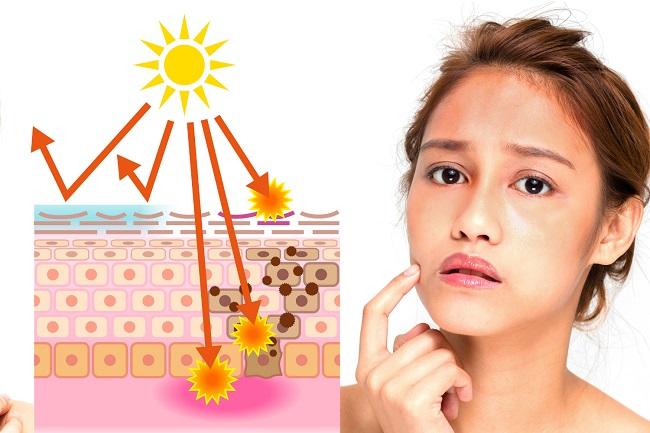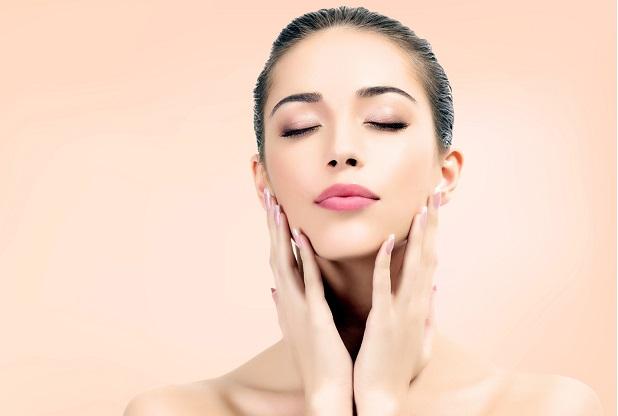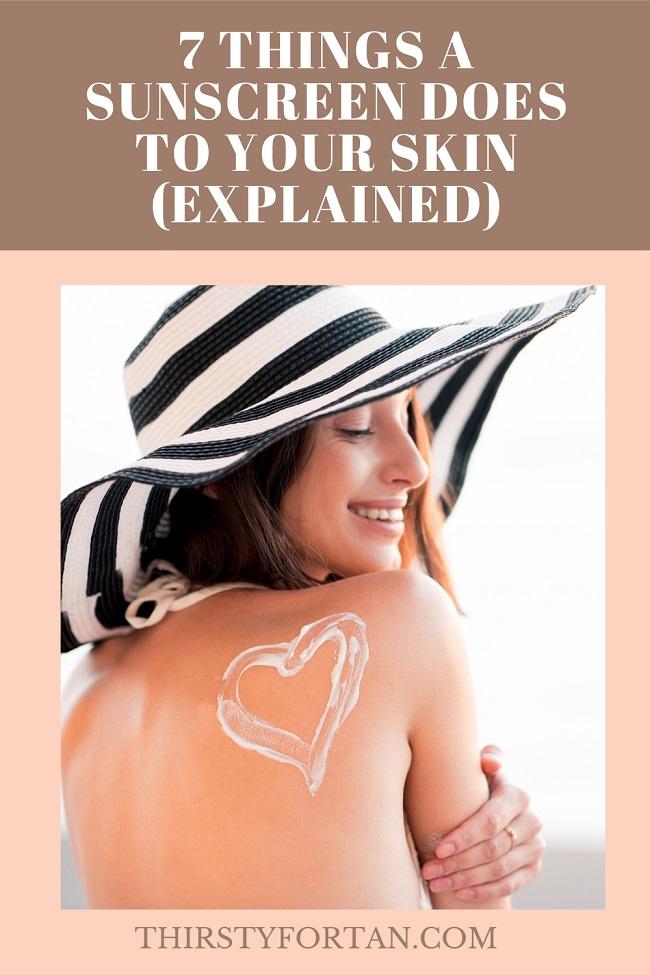Sunscreens have been the underrated step of our skincare routines for years, and we’re finally starting to pick up on just how important they are, but there are a variety of things they can do to your skin (aside from preventing sunburn), both positive and negative, which we will discover now.
How do they work
Before you find out about some of the things that come from wearing sunscreen, knowing how they work in the first place is useful, and allows everything else which comes afterward to make sense in a simple, straightforward way.
There are two types of sunscreen, chemical, and mineral, which work in different ways but, ultimately, they both protect you from the Sun’s UV rays in the end. Mineral sunscreens work by creating somewhat of a physical ‘barrier’ over the surface of your skin, and work by deflecting the rays before they even come into contact with the various layers of your skin. On the other hand, chemical sunscreens work by soaking into the top few layers of the skin and absorbing the UV rays from there, before they have the opportunity to damage your skin.
Because of the different ways in which these sunscreens function, they also have other differences to each other, but that’s another topic. For now, we can focus on what sunscreens do to your skin.
1. It protects you from premature skin-aging
There are two types of UV rays that come from the Sun, and sunscreen protects us from UVA and UVB. Both of the different types of rays are responsible for different things, and UVA ones have a longer wavelength. They penetrate deeper into the skin than UVB rays do, and they are responsible for long-term damage which can arise again in the future.
One of the main examples of this long-term damage is premature skin-aging, coming in the form of fine lines, wrinkle,s and age spots. By wearing sunscreen, you are preventing the chances of premature aging, and reducing natural aging, too.
Also read: Does Sunscreen Block Vitamin D? (Explained)
2. Your skin is less likely to get a natural suntan
Of course, wearing sunscreen prevents sunburn, as that is one of the main ideas of it, and that also has additional effects.
When you are exposed to UV radiation, the outer layers of your skin suffer from genetic cell damage where the UV comes into contact. In reaction to this, as a defense mechanism, your skin produces a pigment, known as melanin, which gives your skin its colour and contributes to a gorgeous tan.
If you are protecting yourself from that initial sun damage in the first place, there isn’t anything (or as much) to trigger that melanin production, and, therefore, you are less likely to tan, or it will happen slower. This shouldn’t be a cause for concern, however as, if you are into tanning, self-tanning or a spray tan are always much safer options for your skin.
Also read:
Does Sunscreen Ruin Fake Tan? (4 Ideas To Prevent It)
Is Sunscreen Biodegradable? (Eco-Friendly)
Does Sunscreen Attract or Repel Bugs? (Explained)
What Type of Sunscreen is Best for Black Skin? (Explained)
3. It can lower your risk of skin cancer
As mentioned before, wearing sunscreen obviously prevents sunburn, but that is responsible for something else, other than a lack of a suntan. When you suffer from sunburn, the cells in the upper few layers of your skin suffer from genetic damage, and sunburn is your body’s way of showing this, once is gone too far past the point of doing what it can to prevent any injury.
Every time you suffer from sunburn, you are increasing your risk of developing melanoma, the deadliest form of skin cancer, during a later stage in your life. Studies have shown that getting burnt once every two years can triple your chances of developing melanoma. By simply wearing sunscreen, you are protecting yourself from this danger.
4. It doesn’t moisturize your skin, and can even dry it out
In case you weren’t already aware, sunscreen is a skincare product that is designed to work on the surface of your skin. Although a chemical sunscreen technically ‘absorbs’ into the upper layers of the skin, it is only the active defense ingredients (the UV filters) that do this, and even those don’t penetrate into your skin as deep as some other products.
When it comes to a moisturiser or lotion, these products contain humectants, which are a type of ingredient designed to attract water, which increases your skin’s hydration levels. While some sunscreens do contain humectants, they aren’t usually as effective as they are in moisturisers, so don’t count on your sunscreen to be a fulltime moisturiser, too.
5. Your skin tone will remain more even
For people who suffer from pigmentation, acne scarring, or other skin tone-related issues, they may try using certain exfoliants and similar products which speed up the rate of natural exfoliation of the skin and are supposed to treat these skin concerns.
However, many people find that the products they are using don’t work very well, or that their skin is either getting worse on its own or not healing like it naturally should. A big factor which can influence this is the sun as this is a result of some of the short-term damage which you may not notice otherwise. By using sunscreen, you are likely to see a big improvement in your skin’s tone and texture over time.
6. It can also have some negative side effects
While there are so many upsides and benefits of using sunscreen every day (which, by the way, you definitely should), there can also be a few potentially negative side effects that come with certain products. Now, it’s really important to remember that this isn’t the case for every product, and it also isn’t the case for every person.
If you have sensitive skin or are allergic to some of the ingredients included in your sunscreen, there is a risk that you may develop an irritation or a reaction. Some formulas may also clog pores and cause breakouts, especially for oily skin. The best way to prevent anything like this is by being careful with the products you use, and what ingredients they have in them.
Also read:
Is Sunscreen Bad for You? (How To Prevent The Danger?)
Does Sunscreen Go Bad? (Expiration Date Explained)
7. Skincare products prove to act more effectively
Although this can be difficult to prove yourself, or it may be harder to notice at first, evidence shows that using sunscreen every day can increase the effectiveness of some of your skincare products.
Most, if not all, of your skincare products, will act in this way when you use sunscreen because this will restore and maintain your skin’s barrier, as it is not suffering from any sun damage, even if you didn’t notice that it was before. When your skin’s barrier is restored and in good condition, you are less likely to experience certain skin concerns, and other products have the opportunity to perform at their peak.
- SUPERIOR ENDURANCE VS. SWEAT & WATER — From family fun to hardcore competition, Banana Boat Sport Sunscreen provides strong sun protection that stays on so you can play on
- CLINICALLY PROVEN UVA/UVB PROTECTION — This SPF 50+ broad spectrum sunscreen spray protects skin from the sun's harmful UV rays
- 3-fluid ounce travel size bottle of Neutrogena Ultra Sheer Dry-Touch Non-Greasy Sunscreen with SPF 70 for broad spectrum UVA/UVB protection
- This lightweight and sheer sunscreen is fast-absorbing with Dry-Touch technology for a non-greasy, matte finish that leaves skin feeling clean. The face and body sunscreen is formulated with Helioplex for superior sunburn protection for your skin
- EltaMD UV Clear Face Sunscreen is a lightweight oil free sunscreen made with transparent Zinc Oxide that leaves no white cast after applying and helps block damaging UVA and UVB rays from the sun
- Dermatologist recommended face sunscreen for acne prone skin is oil-free, protects against breakouts, and is an essential acne sunscreen for those with acne prone skin care concerns and other sensitive skin types like rosacea and hyperpigmentation
If you click Buy on Amazon and make a purchase, I'll earn a small commission at no additional cost to you.
Final thoughts
Although there are some negative effects of using sunscreen, these are very minor when you’re careful, and some simple thoughtful decisions are all that’s needed to prevent these effects from getting in the way or even affecting you at all. Now that you know some of the benefits that come from wearing sunscreen, hopefully, you feel even more motivated to remember the most important step of your morning routine!







